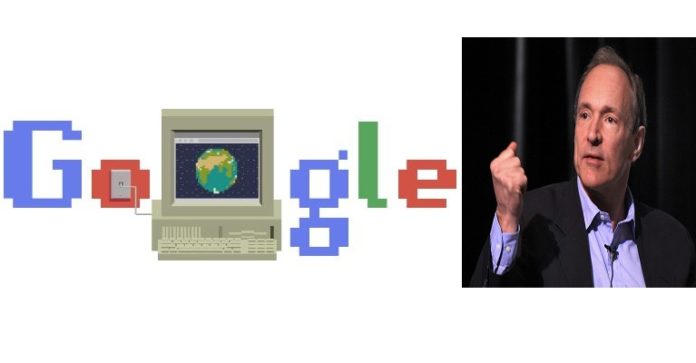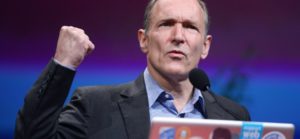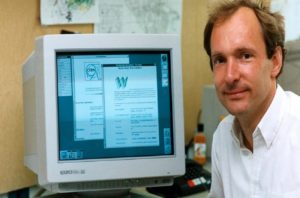
Google Doodle celebrated thirty years of the World Wide Web, an innovation that modified the long run of the human world.

On March 12, 1989, 33-years-old Sir Tim Berners-Lee, engaging at Europe’s CERN research lab had submitted the ‘Information Management: A Proposal’ to his boss that we tend to these days grasp because of the birth of the World Wide Web.
The primary recorded response of his boss was, “Vague however exciting.” at first, Berners-Lee pictured “a massive machine-readable text information with written links, named “Mesh,” to assist his colleagues at CERN (a massive physics laboratory in Switzerland) share data amongst multiple computers.
Berners-Lee’s boss allowed him time to develop the humble flow chart into an operating model, writing the HTML language, the Hyper Text Transfer Protocol, and WorldWideWeb.app— the primary application program and page editor.
By 1991, the external net servers were up and running. The web was created public in April 1993.
Its recognition started spreading from November with the launch of Mosaic, the primary computer programme to simply accept photos.
That revolutionized the web, making it user friendly.

Mosaic was later replaced by the likes of Google Chrome, Internet Explorer and Mozilla Firefox.
Thanks to the quantity of web users explodes, from the score of million in the early 1990s to over four hundred million folks in 2000.
The 2000s marks the establishment of wireless internet for all.
Marking the 30th anniversary of his revolutionary innovation, World Wide Web discoverer Tim Berners-Lee, in media interaction appealed for internet users to attempt to take care of “complete control” of their information.
He slammed the increasing commodification of non-public information and has been on a mission to keep his invention save from a variety of issues progressively dominating online life, as well as lack of data protection and an absence of knowledge.

“You should have complete control of your data. It’s not oil. It’s not a commodity,” he told a small cluster of journalists gathered at Europe’s research laboratory CERN, wherever he initial came up with the thought for the the web 30 years ago.
In a letter published on Monday, Tim Berners-Lee hailed the opportunities the web had created, giving marginalized teams a voice and creating daily life easier. However he warned, “It has also created opportunity for scammers, given a voice to those who spread hatred, and made all kinds of crimes easier to commit”.

Yet, he was optimistic that the issues might be fixed. “If we give up on building a better web now, then the web will not have failed us. We will have failed the web.”
(Dapinder Kaur)






